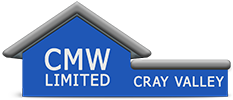
Introduction
Every component plays a crucial role in ensuring the reliability and longevity of the infrastructure in network installations. Bolts and anchors might initially seem insignificant. Still, their importance must be balanced in the UK, where infrastructure standards are stringent, and quality is paramount, so selecting bolts and anchors is critical. This article delves into the significance of choosing quality bolts and anchors for network installations in the UK and explores their cost-effective implications.
Understanding the Importance of Quality Bolts & Anchors
Bolts and anchors are the backbone of any network installation, providing stability and structural integrity to the infrastructure. In the UK, where weather conditions can be harsh and safety standards are rigorous, these components' quality directly impacts the network's reliability and safety. Low-quality bolts and anchors may compromise the stability of the installation, leading to costly repairs, downtime and even safety hazards.
Factors to Consider in Bolt & Anchor Selection
When selecting bolts and anchors for network installations, several factors must be taken into account to ensure optimal performance and longevity:
Material Quality: High-grade materials such as stainless steel or galvanized steel offer superior corrosion resistance, essential for outdoor installations exposed to the elements.
Load Capacity: Bolts and anchors must support the intended loads without deformation or failure. It's crucial to assess the expected loads accurately and select components with adequate load-bearing capacity.
Installation Environment: Consideration must be given to the installation environment, including factors such as temperature fluctuations, moisture levels, and exposure to chemicals or pollutants.
Compliance with Standards: Supporters and anchors in network installations must comply with relevant British and European standards to ensure they meet the required safety and performance criteria.
Long-Term Durability: Opting for high-quality bolts and anchors may involve higher initial costs, but reducing the frequency of maintenance and replacement can result in significant long-term savings.
Cost-Effective Solutions Through Quality
Contrary to common perception, investing in quality bolts and anchors can be cost-effective in the long run. Here's how:
Reduced Maintenance Costs: High-quality bolts and anchors are less prone to corrosion, wear, and fatigue, reducing the need for frequent inspections and maintenance activities.
Extended Service Life: Quality components offer superior durability and reliability, resulting in extended service life compared to cheaper alternatives. This translates to fewer replacements over the lifespan of the network infrastructure.
Enhanced Safety: Using quality bolts and anchors reduces the risk of structural failures, ensuring the safety of personnel and equipment. Avoiding accidents and liabilities associated with substandard components can lead to substantial cost savings.
Improved Operational Efficiency: Reliable network infrastructure minimizes downtime and disruptions, enhancing operational efficiency and productivity. The initial investment in quality bolts and anchors pays off through uninterrupted operations and reduced productivity losses.
Regulatory Compliance: Compliance with industry standards and regulations is non-negotiable in the UK. Choosing quality bolts and anchors ensures adherence to safety standards, avoiding fines, penalties, and legal complications arising from non-compliance.
FAQs
Why are bolts and anchors important in network installations?
Bolts and anchors provide stability and structural integrity to network installations, ensuring reliability and safety, particularly in harsh environments.
What factors should be considered when selecting bolts and anchors?
To ensure optimal performance, factors such as material quality, load capacity, installation environment, compliance with standards, and long-term durability should be considered.
How do quality bolts and anchors contribute to cost-effective solutions?
Investing in quality components reduces maintenance costs, extends service life, enhances safety, improves operational efficiency, and ensures regulatory compliance, leading to long-term cost savings.
What are the benefits of complying with UK infrastructure standards?
Compliance with UK standards ensures that network installations meet rigorous safety and performance criteria, minimizing risks of accidents, fines, and legal complications.
Why should I prioritize reliability and safety in network installations?
Prioritizing reliability and safety minimizes downtime, disruptions, and productivity losses, ultimately optimizing the performance and longevity of network infrastructure investments.
Conclusion
Prioritizing quality over cost when selecting bolts and anchors is not just a matter of preference but a strategic decision with far-reaching implications. The UK's stringent standards and demanding operating environments require high-quality components to ensure reliability, safety, and compliance. While the initial investment in quality may seem higher, the long-term benefits of reduced maintenance costs, extended service life, and enhanced safety far outweigh the short-term savings of cheaper alternatives. By assessing the value of quality bolts and anchors in the context of cost-effective solutions, network installers can make informed decisions that optimize performance, durability, and overall return on investment.
If you want to take a closer look at our range of Bolts & Anchors, click here. If you want to contact or find out more about this blog posts author, Dave click here.
